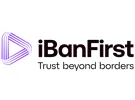If there is a sharply fluctuating exchange rate, iBanFirst's phone rings more often. "There are often two emotions that dominate, namely fear and greed," notes currency expert Joost Derks. He advises SMEs not to become a plaything of their own emotions. "Many companies like to rely on their gut feeling, but that often goes wrong anyway. It is better to make agreements with yourself and stick to them and not go along with the emotion of the moment."
 "Fear is often stronger than greed. When the price goes in the wrong direction, and margins go down, we often see companies paralyzed by fear, hedging risks at a bad time when they previously knew they were at risk," Joost continues.
"Fear is often stronger than greed. When the price goes in the wrong direction, and margins go down, we often see companies paralyzed by fear, hedging risks at a bad time when they previously knew they were at risk," Joost continues.
"Now, for example, the dollar is weaker, so they prefer to rig the strategy of wait and see. In itself, this is a very human thought. But it is the reason why we often ask beforehand at what level a customer is satisfied. You can always want more, but you should also not forget to take advantage of a situation and regret it afterwards. Our advice to companies is always to know where the risks are and what risks they can and want to take as a company. The starting point is always to hedge the negative risk and keep the positive risk open."
"No one can predict the exchange rate. At most, you can have an idea where the exchange rate is going, but that offers no guarantee. As iBanFirst, we try to think along with the customer about which solution suits them best. We do this by asking critical questions and listening carefully to what the customer needs. On that basis, we create a number of hedge strategies that suit the customer. After all, what choices someone makes always remains very personal."
In less than a decade, iBanFirst has become a partner for small and medium-sized enterprises (SMEs) operating across borders, combining a payment platform with the support of currency experts. With iBanFirst, executives and finance teams can gain direct access to currency markets, hold, collect, and send money in more than 30 currencies, as well as develop customized hedging strategies.
"The solutions we offer are not complicated, but each consists of understandable products. With our platform, we process more than EUR 1.4 billion worth of transactions every month. Within Europe, we operate in 10 different countries. That makes it interesting for companies to open an account with iBanFirst because then the money is immediately in their account."
"The fresh produce sector is characterized by short lead times. But we also see interest from fresh produce companies that have longer-term contracts with UK retailers, for example. That makes it interesting to look at a dynamic forward contract."
"Another interesting option we can offer is a flexible forward contract. That is interesting, for example, for companies that know they need dollars or pounds within four to eight weeks but don't yet know exactly when they need to pay or receive them. They can commit those with a flexible forward for the said period," Joost says.
Payment tracker
A common feature that iBanFirst deploys in its platform is the payment tracker, which uses a technology to track all foreign payments. "A kind of track-and-trace like you have with your DHL delivery, but to see exactly where your international payment hangs out," Joost explains. "For example, they can see that the payment has already been made but not yet credited by the beneficiary's bank. Customers often use this information to share with their suppliers. This increases trust, and with this, we make payment transactions more transparent."
"Thereby, from a compliance point of view, we check in advance where a payment is going or coming from. When companies create a new payee, the counterparty is checked first. In the platform, it is possible to enter several authorization steps, the so-called four-eye principle, which always requires two or three people to make the payment. If, for example, there is a change in account data, the old data must be deleted before the new data is entered. The person within the organization with the highest authority is notified of this. Only when everything is approved can payments go out. Email fraud is the order of the day, and you cannot be too careful," Joost concludes.
 For more information:
For more information:
Joost Derks
iBanFirst
Tel.: +31 85 808 5033
jde@ibanfirst.com
www.ibanfirst.com
